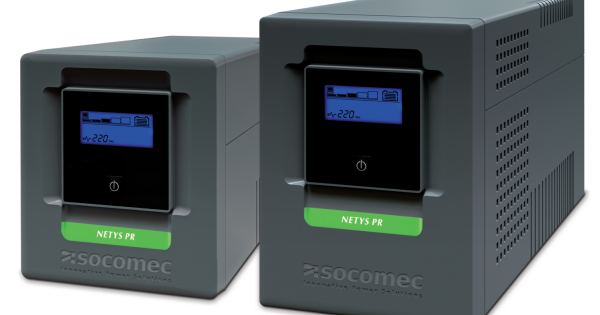Optimising Power Resilience in Network Closets & IDF Rooms
- Brendan Mannings
- Jul 24, 2025
- 3 min read

When it comes to safeguarding your critical network infrastructure—like IDFs or remote network closets—don’t overlook the unsung hero: the Uninterruptible Power Supply (UPS). Eaton's guide outlines 10 essential tips to help you make the right selection. Let’s break it down with practical insights, aligned to Indigi Power & Cooling’s expertise in precision-engineered electrical environments.
1. Choose the Right UPS Form Factor
Rackmount (1U–3U): Ideal for integration into standard server racks—position them low in the rack to support external battery packs and maintain stability
Wall-mount: Perfect for tight spaces—lighter lithium-ion models are often used, keeping equipment off the floor and out of the way EatonEaton.
Tower: Cost-effective and flexible—can be used vertically on floor or shelf deployments Eaton.
Recommendation: Select form factors that align with your physical environment and heat management strategy.
2. Right‑size for Runtime & Capacity
Estimate load (total wattage) and oversize by ~20% for future-proofing
Runtime needs: typically 7–10 minutes is sufficient for graceful shutdowns; halving load approximately triples runtime Eaton+1Eaton+1.
Indigi tip: Perform load audits on rack gear and build in headroom for expansion or increased equipment density.
3. Understand Wattage vs VA Ratings
VA = apparent power; Watts = real output. A 1000 VA UPS may deliver only 600 W unless it’s rated for higher efficiency Eaton+2Eaton+2Eaton+2.
Always check watt rating, not just VA.
Pro insight: Choose a UPS where the watt rating comfortably exceeds peak load to prevent performance issues.
4. Match Voltage & Plug Type
Ensure plug type and voltage match site power: e.g., in Australia typically single-phase 230 V, but check for 20 A circuits if higher capacity is needed
Larger systems may require dedicated circuits (20 A/30 A).
Indigi takeaway: Audit power availability in the closet before specifying UPS models to avoid surprises.
5. Outlet Configuration
Confirm the number and types of outlets match your gear.
Option: use PDUs when UPS outlets are insufficient – Eaton’s FlexPDU is ideal for compact setups Eaton+2Eaton+2Eaton+2.
Value add: Indigi can pre-wire integrated rack solutions with included PDUs for seamless plug-and-go functionality.
6. Noise Considerations
As a service provider: consider noise as part of deployment, especially in customer-facing or collaborative areas.
7. Installation & Thermal Management
Factor in proper ventilation—UPSes need airflow to avoid overheating Eaton+1Eaton+1.
Heavier models should be secured with appropriate shelving or rack hardware.
Indigi strategy: Ensure cabinets allow 50–100 mm of clearance for airflow; use temperature monitoring where necessary.
8. Consider Monitoring, Alerts & Automation
Network cards (SNMP, HTTPS, email alerts) offer remote monitoring for single UPS units Eaton.
For larger or multi-site deployments: Eaton’s Intelligent Power Manager supports virtualised server shutdowns, PDU automation & predictive alerts Eaton+2Eaton+2Eaton+2.
Indigi integration: Implement centralised monitoring with your BMS or server room management tool.
9. Check for Maintenance Bypass & Redundancy
Maintenance bypass switches enable servicing without power interruption
Redundancy (e.g., N+1 or dual UPS paths) ensures resilience in mission-critical setups.
Indigi approach: Design modular systems that allow swapping units and batteries with zero downtime.
10. Warranty & Battery Type
Indigi recommendation: Specify lithium‑ion options where battery weight and lifecycle cost matter; offer extended warranties for peace of mind.
Why This Matters for Indigi Power & Cooling
Reliability: Properly sized and monitored UPS systems reduce downtime risk in critical network spaces.
Maintainability: With remote alerts and hot‑swap features, equipment stays online longer with less on-site intervention.
Space & Thermal Efficiency: Modular/lighter units, correct placement, and ventilation reduce environmental strain.
Customer Confidence: Offering integrated, full-lifecycle supported power solutions builds trust in your service.
✅ Final Checklist
Step | Task |
1 | Pick form factor (rack/tower/wall) suited to closet space |
2 | Calculate total wattage, add 20% buffer |
3 | Ensure watt rating meets demand |
4 | Confirm site voltage & plug compatibility |
5 | Verify outlet types; use PDUs if needed |
6 | Check noise levels for environment |
7 | Plan installation and cooling clearances |
8 | Integrate monitoring & alert systems |
9 | Specify redundancy and bypass features |
10 | Opt for lithium batteries with strong warranty |
By following Eaton’s expert advice—and applying Indigi’s standards—you’ll deliver resilient, maintainable and scalable UPS deployments tailored for network closet applications. Want help selecting models or integrating intelligent power management? Indigi Power & Cooling is here to design and support your infrastructure from end to end.
_edited_edi.png)



Comments